Best ultra short throw projectors 2025: big, bright images from a box
The best ultra short throw projectors for your home theater
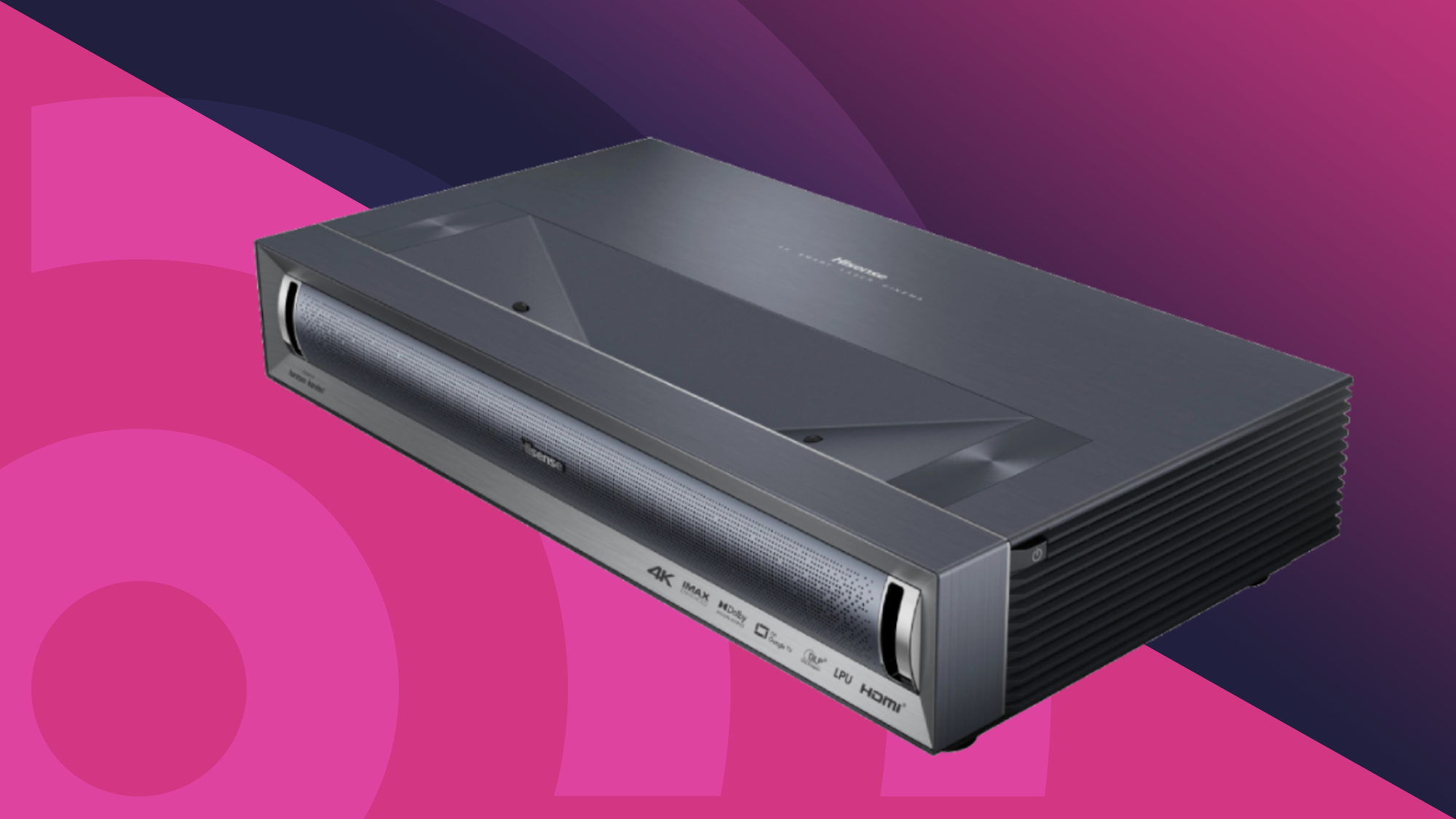
The best ultra short throw projectors, or UST for short, can beam an ultra-large picture from an ultra-short distance. They are designed as an alternative to standard 'long throw' projectors, which must be positioned at the back of a room to generate a large image – usually on a separate projection screen mounted on the opposite wall.
UST projectors also use a separate screen and some models are packaged with an ambient light rejecting (ALR) screen that uses a special material formulated for UST models. In a UST setup, the projector is positioned directly below the screen. The screen material filters out light coming from above, while reflecting light coming directly from the projector. This arrangement allows for UST projectors to deliver bright images even in a daylight environment or one with overhead lights.
We’ve rounded up the best UST projectors we’ve tested below. The models listed use different technologies, such as DLP and 3LCD to display pictures, but all have a laser-based light engine and a specified 4K on-screen resolution. We’re sure there’s a model here that suits your needs, whether it’s watching movies or sports, or gaming. And if you’re thinking that maybe a regular long-throw projector or even a portable model would be a better fit for your space, also check out our best 4K projectors guide.
The quick list
Want to cut to the chase and find out which ultra short throw projectors are the best? Below, you’ll find a roundup of our choices. You can also jump to a more detailed review of every pick and our price comparison tool to help you find the best deals.
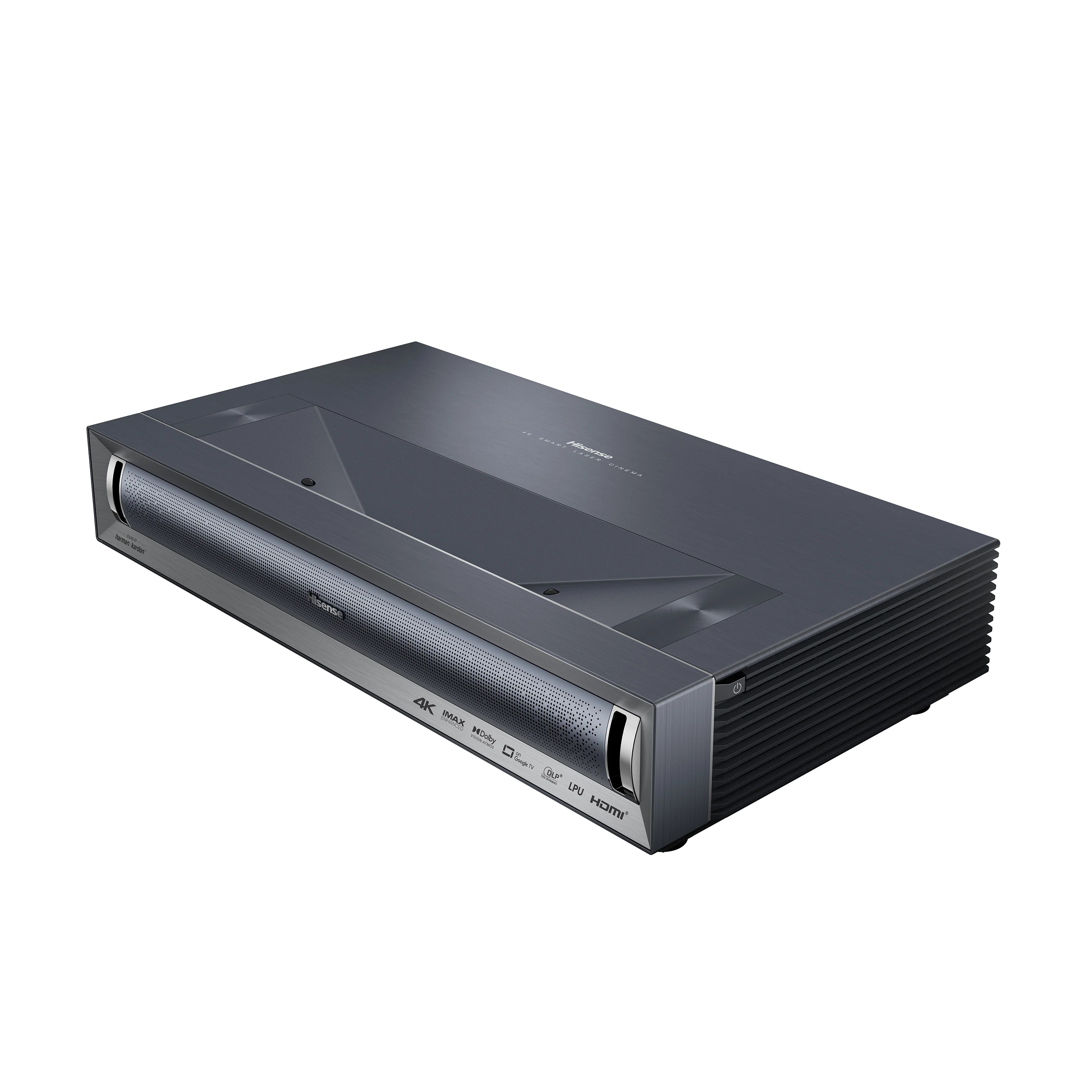
Best for most people
With high brightness and rich color from its 3-laser light engine, the Hisense PX3-Pro is a great projector for movies and sports alike. It's also well-equipped for gaming, with multiple HDMI 2.1 ports and support for 4K 120Hz and 1080p 240Hz gaming.
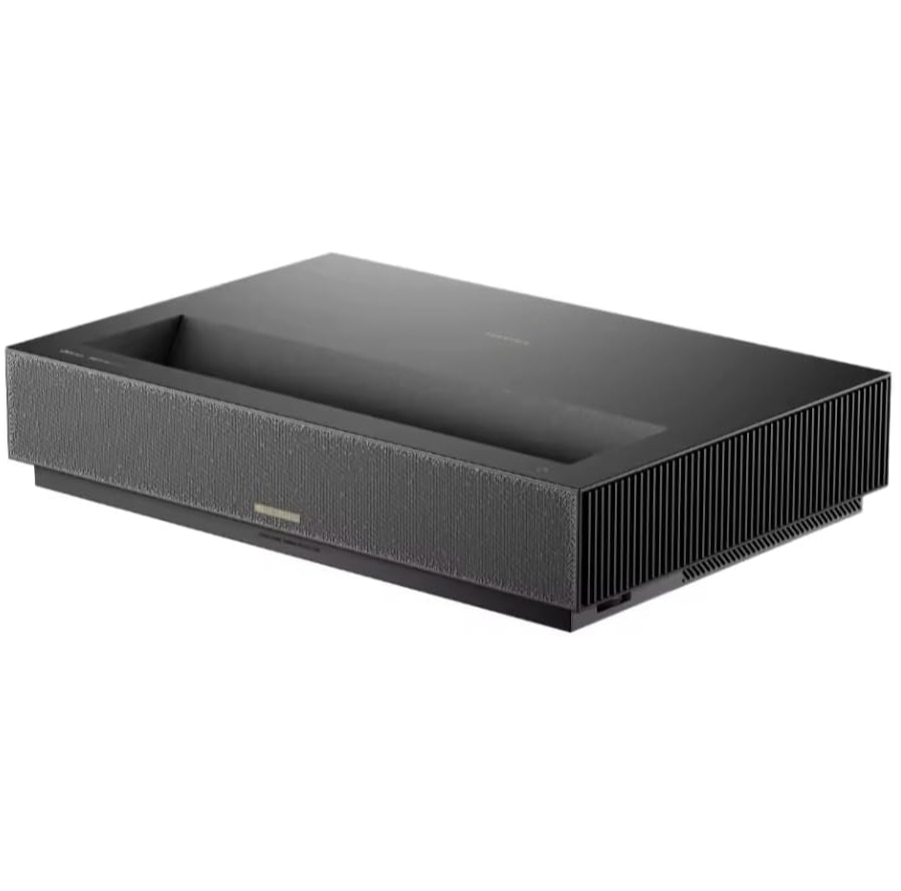
Best budget
While it may not have the features or elite quality of a more premium UST projector, the Formovie Cinema Edge offers good picture and sound quality for an affordable price.
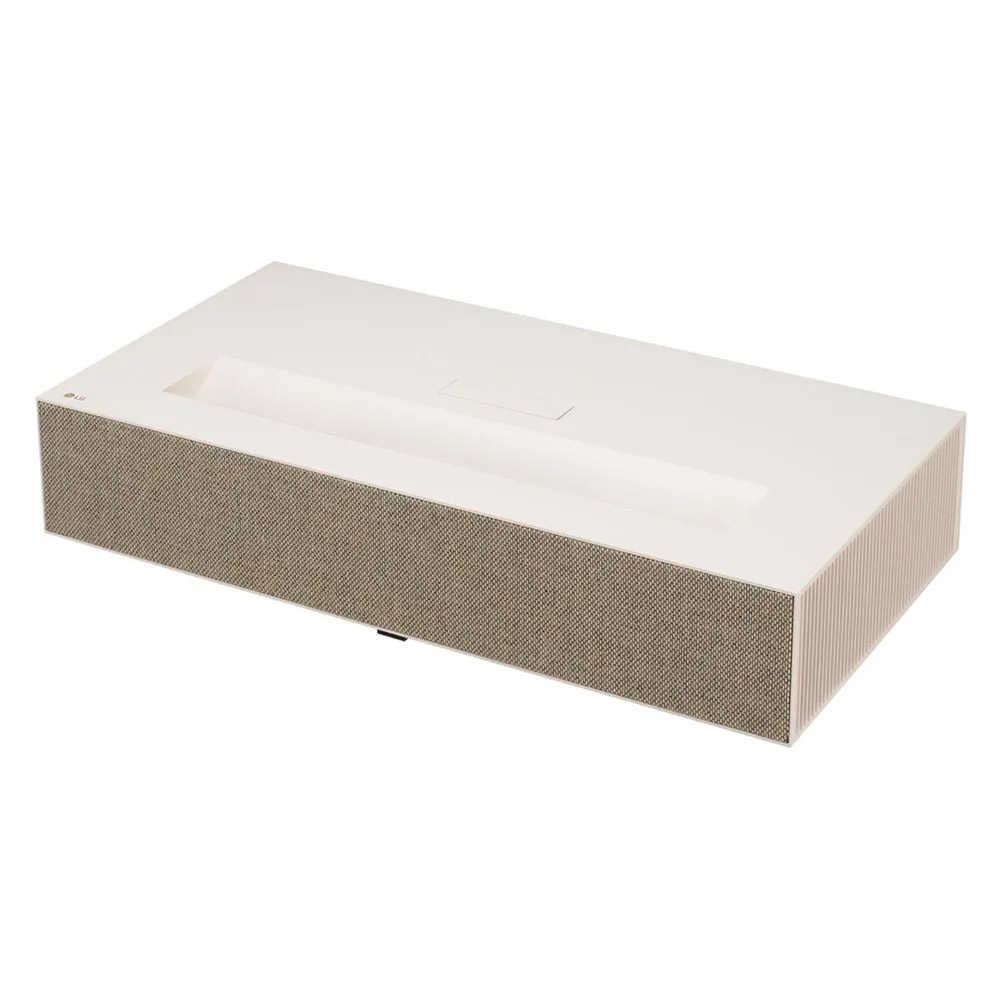
Best for picture quality
LG’s top UST projector is a high-brightness model that impressed us with its picture quality. It’s priced higher than much of the competition, but comes with a full range of features, including LG’s webOS smart TV platform for streaming and voice control.
Load the next 3 products...
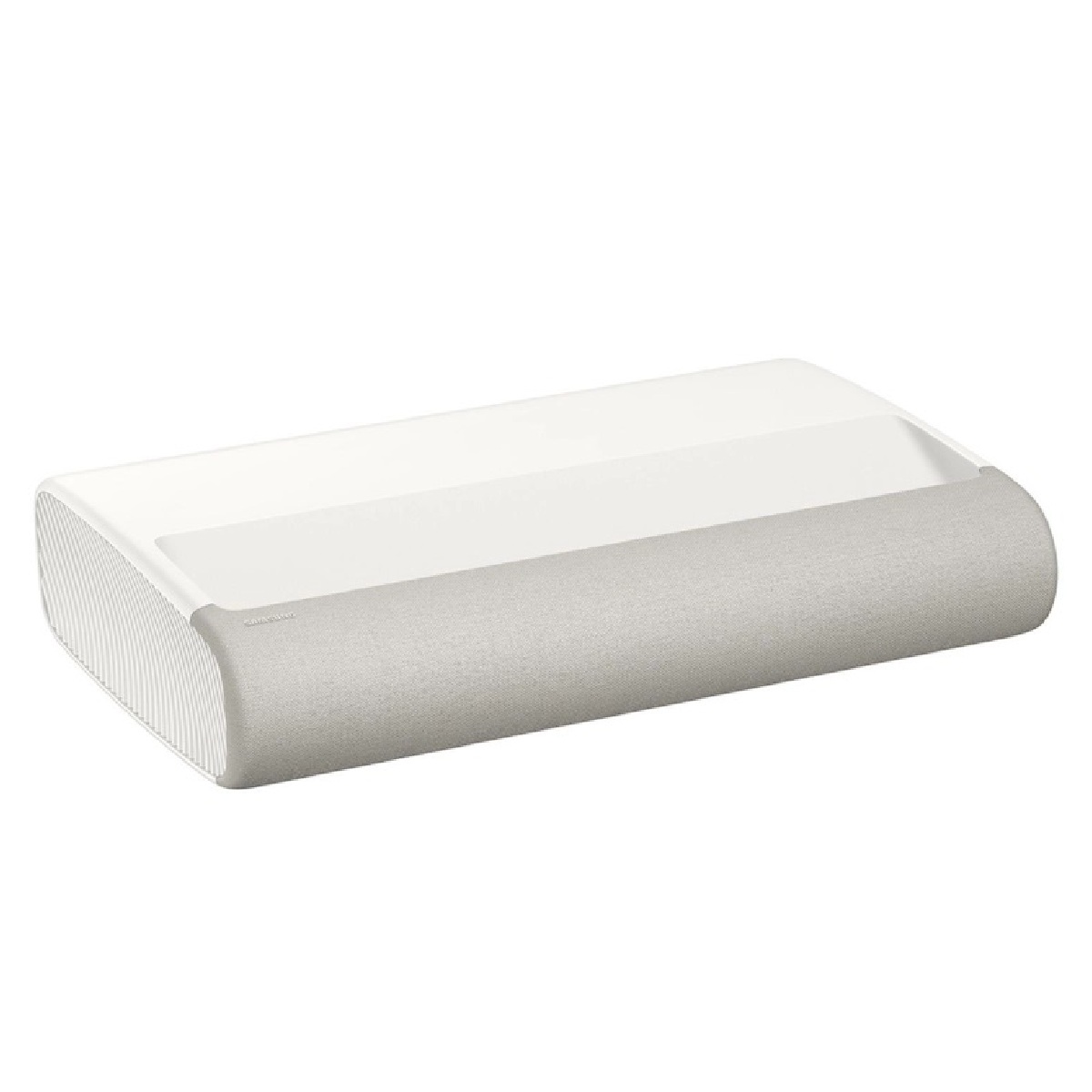
Best for sound quality
With its built-in Tizen smart TV platform for streaming and ability to beam bright images up to 130 inches, Samsung’s The Premiere 9 is a solid UST option. What really makes it special is its audio quality, which is good enough that you can easily do without a soundbar.
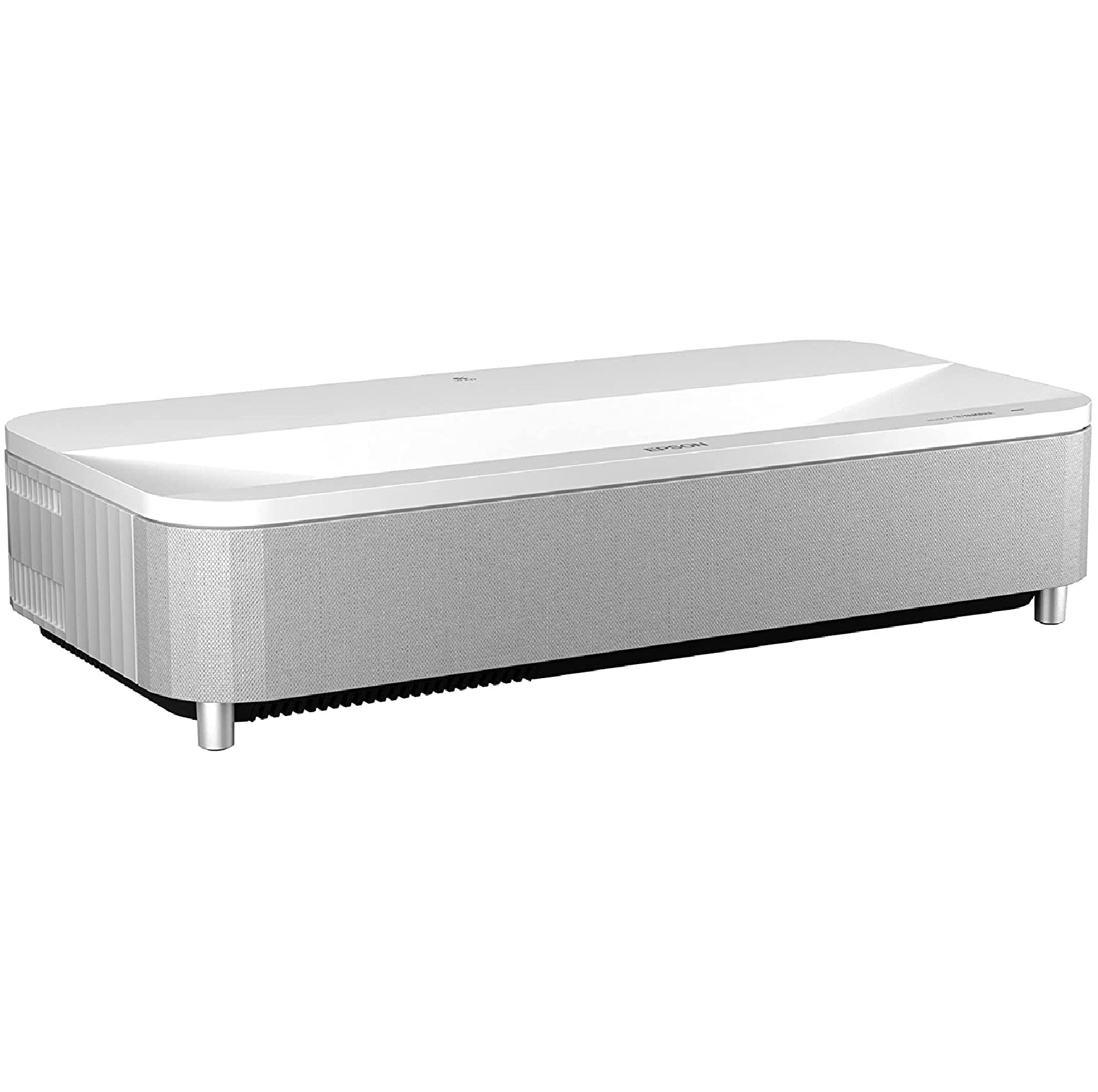
Best for sports
The Epson LS800 can project images as bright as 4000 lumens, making it a perfect choice for daytime sports viewing. It also has a relatively powerful Yamaha-designed built-in audio system that can create a convincing surround effect when its Virtual mode is enabled.
Read more below
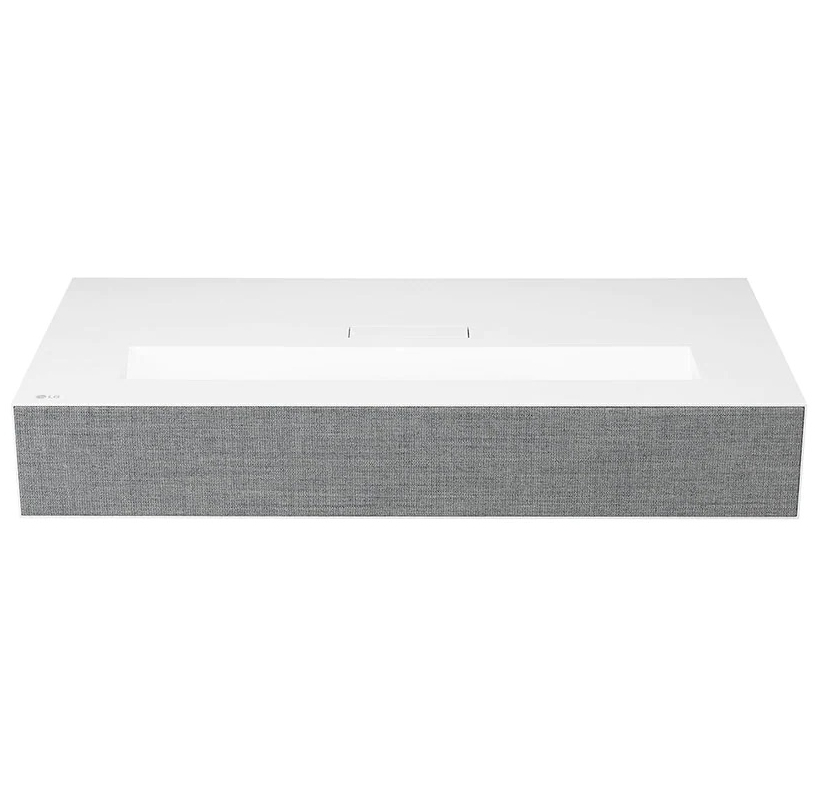
Best for streaming
With LG’s webOS smart system onboard for streaming along with Google Assistant support, using the HU85LA is just like watching a regular smart TV. Its picture lacks the powerful brightness of the company’s HU915QE, but its 3-laser light engine lets it deliver rich color.

I'm TechRadar's Senior Editor for Home Entertainment, and I have nearly three decades of journalism experience, including a long time covering home theater tech. I'm an ISF-trained video calibrator and have written countless equipment reviews ranging from speakers to high-end TVs and projectors. I'm an admitted movie fanatic, and spend much of my free time holed up in my home theater – and these projectors have to stand up to that experience.
Recent updates
January 6 2024
Replaced the Hisense PX2-Pro with the Formovie Cinema Edge as the best budget UST projector. Updated our Also Consider section with other UST models we've tested.
The best ultra short throw projectors 2025
Why you can trust TechRadar
The best ultra short throw projector overall
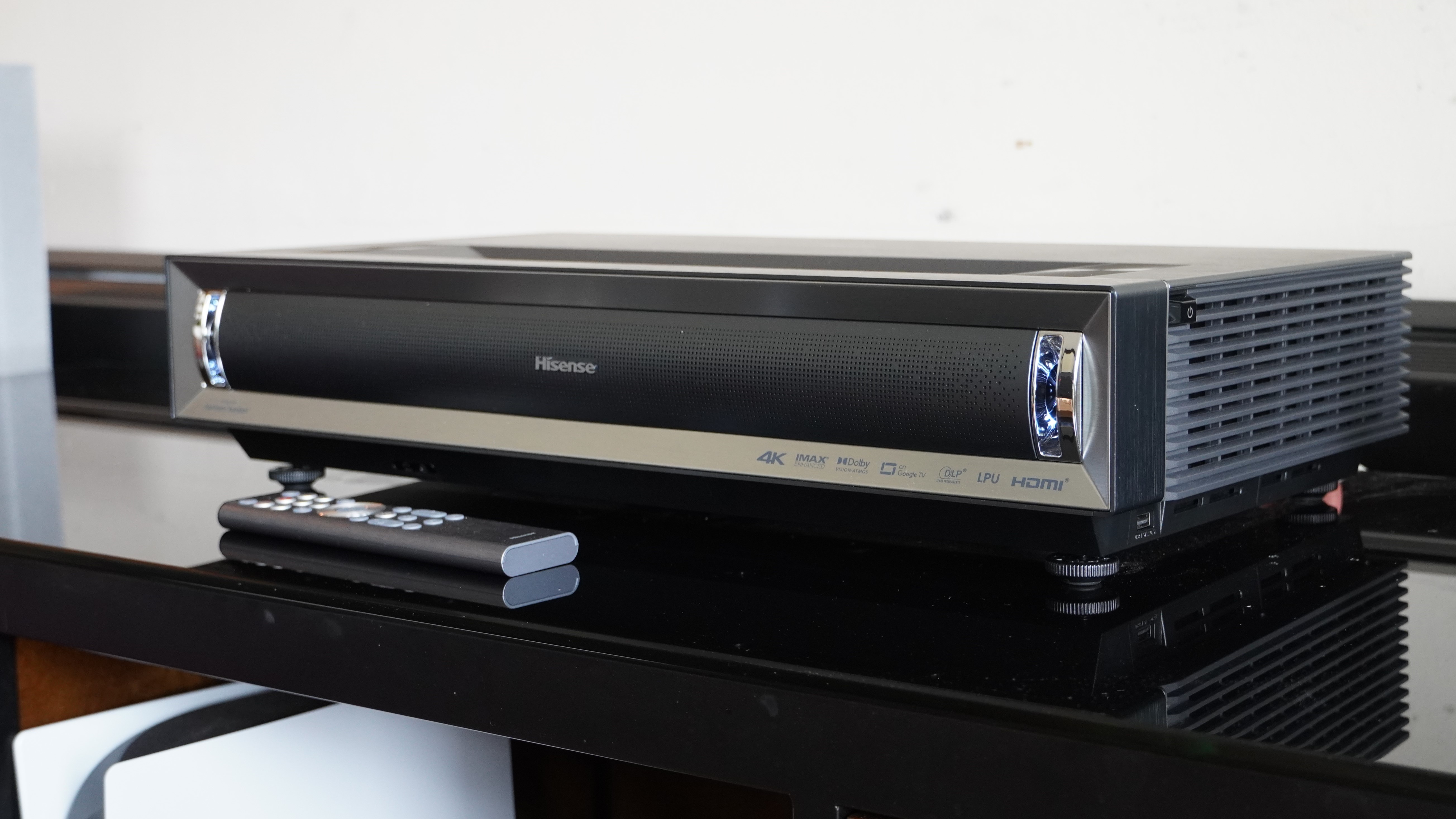
Specifications
Reasons to buy
Reasons to avoid
The Hisense PX3-Pro is the successor to the company’s PX2-Pro, the best budget option in this guide which remains available, though in limited quantities at some retailers. The PX3-Pro is a pricier model, but it justifies the extra cost with a significant brightness boost and the addition of gaming-related features such as 4K 120Hz and 1080p 240Hz support. Other upgrades found in the PX3-Pro include a new, retro-futuristic design and the Google TV platform for streaming from Netflix and other popular apps.
The PX3-Pro’s 3-laser DLP light engine delivers 3,000 lumens brightness compared to the PX2-Pro’s 2,000 lumens. That makes it a good choice for viewing sports and TV shows in brighter living spaces as well as the dim lighting conditions that better suit movies. In fact, when we reviewed it, we said the PX3-Pro has “a bright enough picture that it can call for some dimming of the laser in a dark room.”
While most projectors offer only plain-vanilla HDR10 high dynamic range, the PX3-Pro supports the Dolby Vision, HDR10+, and HLG formats. Its 50W Harman Kardon-designed speaker system is capable of playing loud enough to fill most rooms – “loud enough to match the size of the pictures” as we said in our review – though Dolby Atmos effects are limited.
At $3,499, the PX3-Pro isn’t exactly cheap, but it offers a bright picture with rich color, good sound quality, and an excellent mix of features. It’s also a great projector for gaming, with multiple HDMI 2.1 inputs with support for 4K 120Hz and 1080p 240Hz gameplay. All that is enough for us to choose the PX3-Pro as the best ultra short throw projector for most people.
Read our full Hisense PX3-Pro review
The best budget ultra short throw projector
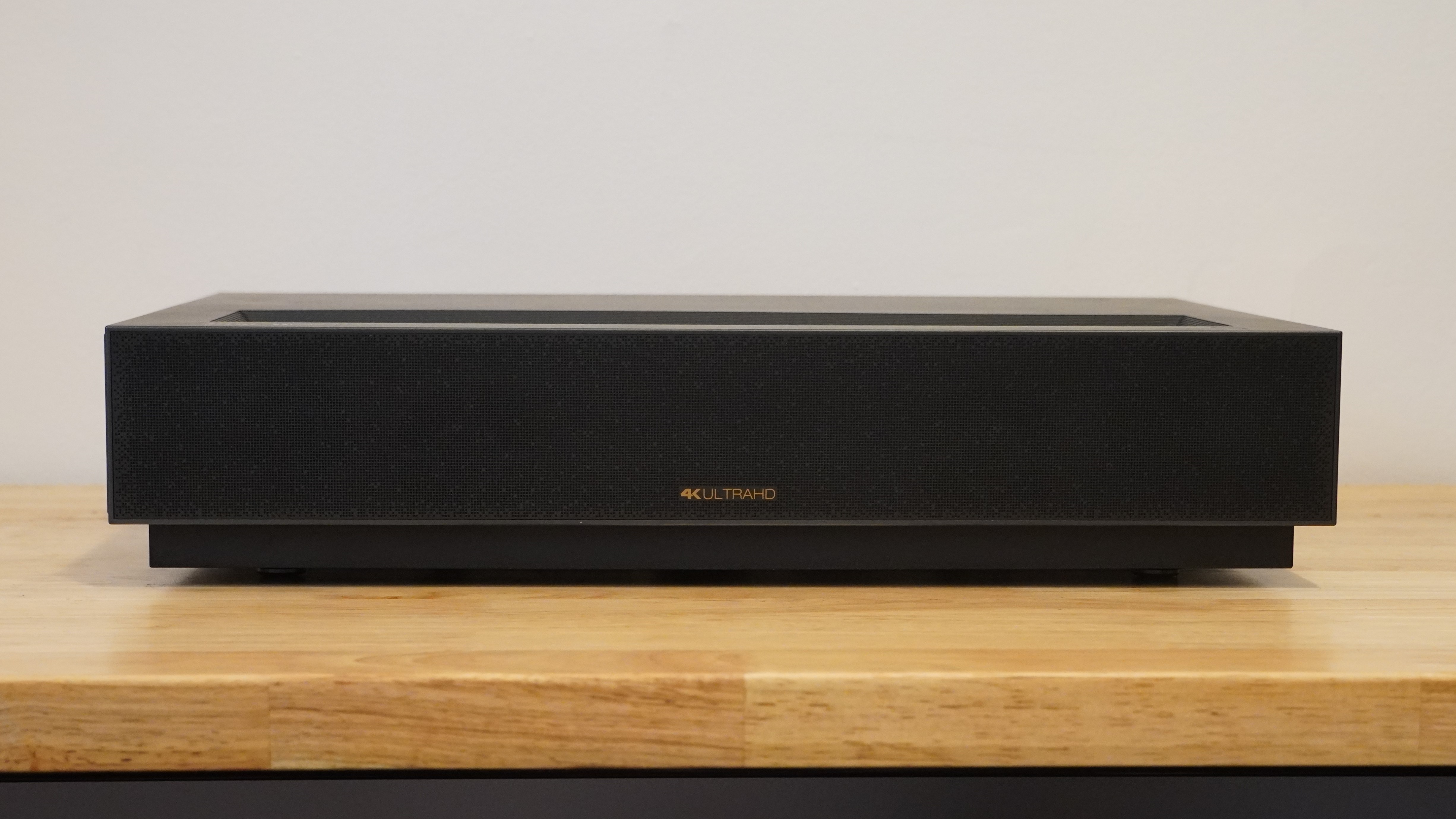
Specifications
Reasons to buy
Reasons to avoid
The Formovie Cinema Edge provides a more affordable model if you're looking for a UST projector on a budget. While it does have to make some sacrifices in terms of features and overall picture quality to keep its price low, it still delivers very good picture and sound for its price tag.
While the Cinema Edge's picture does pale in comparison to more premium projectors like the Hisense PX3-Pro, we were still impressed with its strong contrast and sharp details which made darker movies like Alien "a joy to watch". While its color is disappointing, lacking the shine of RGB Laser competitors, for its price the Cinema Edge has a perfectly fine picture. If you're looking for complete HDR support, you'll need to look elsewhere however as the Cinema Edge is limited to HDR10 and HLG support, with no support for Dolby Vision or HDR10+.
Sound quality from the Formovie Cinema Edge's built-in speakers won't beat the likes of the Samsung Premier 9, but we found it to be suitable for casual viewing and that it projected well enough in a smaller living room during our testing.
Where the Formovie delivers best is in its value. At $1,799 / £1,799, the Formovie Cinema Edge is one of the most affordable UST projectors on the market. While other projectors do best it in terms of overall picture quality, sound and features, the Cinema Edge provides a crucial first step into the world of UST projectors for those who couldn't necessarily afford one.
Read our full Formovie Cinema Edge review
The best ultra short throw projector for picture
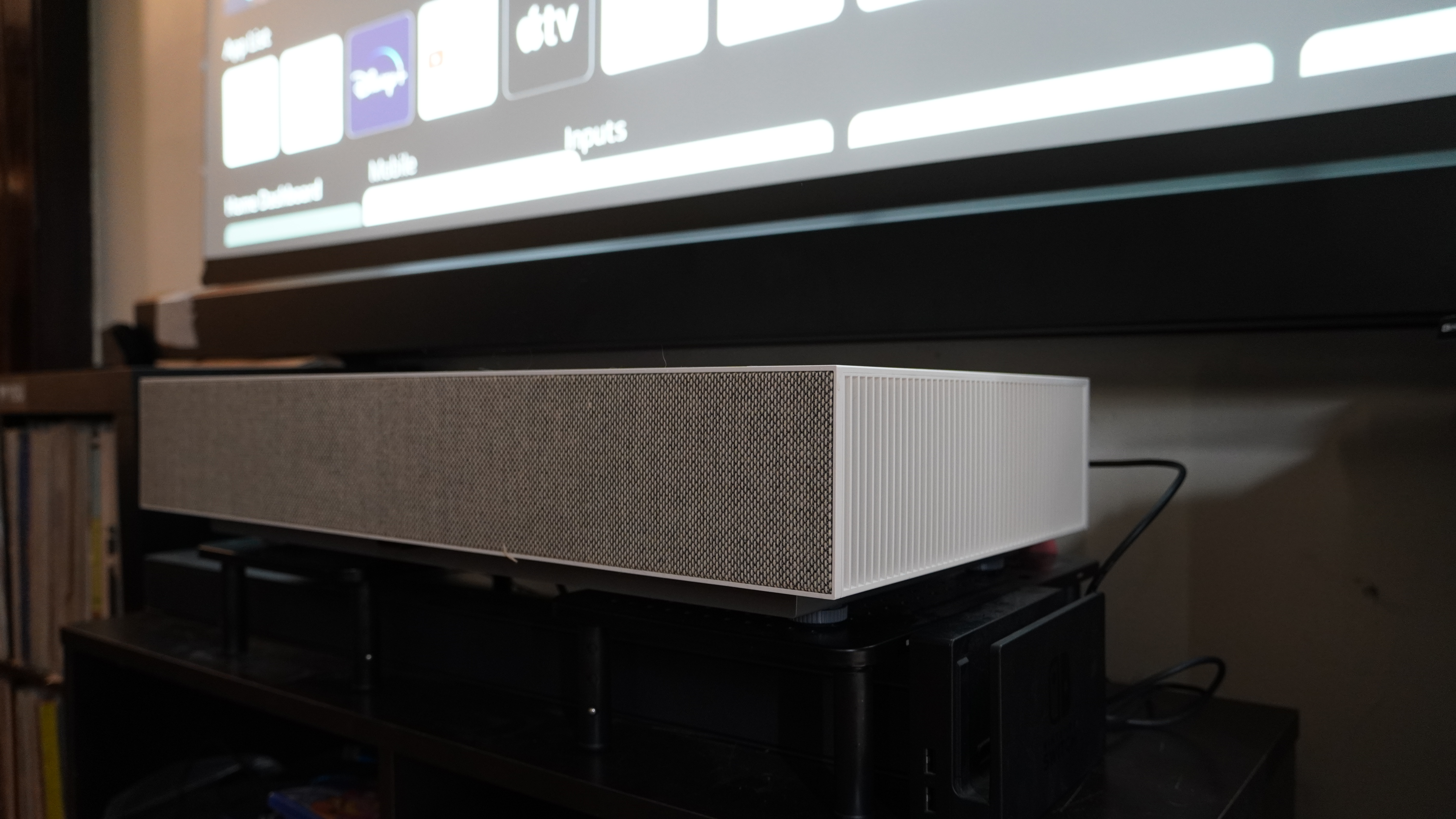
Specifications
Reasons to buy
Reasons to avoid
The LG Cinebeam HU915QE is a relatively new addition to the world of UST projectors, and it’s a fabulous one. But at $5,999 / AU$9,999 (about £5,600), this is anything but a casual home theater purchase.
You get plenty for the money here, though. The HU915QE’s massive 90- to 120-inch picture is exceedingly bright and richly colorful. Even during daytime viewing, this projector is more than bright enough to create a pleasant picture, and just a little bit of ambient light control goes a long way in allowing it to display exceptional ones.
With potent speakers, LG’s handy webOS smart TV system, the convenience of a manual focus wheel, and an image that’s hard to find many faults with, you’d be getting quite a lot for your money with the LG Cinebeam HU915QE.
Read our full LG Cinebeam HU915QE review
The best ultra short throw projector for sound
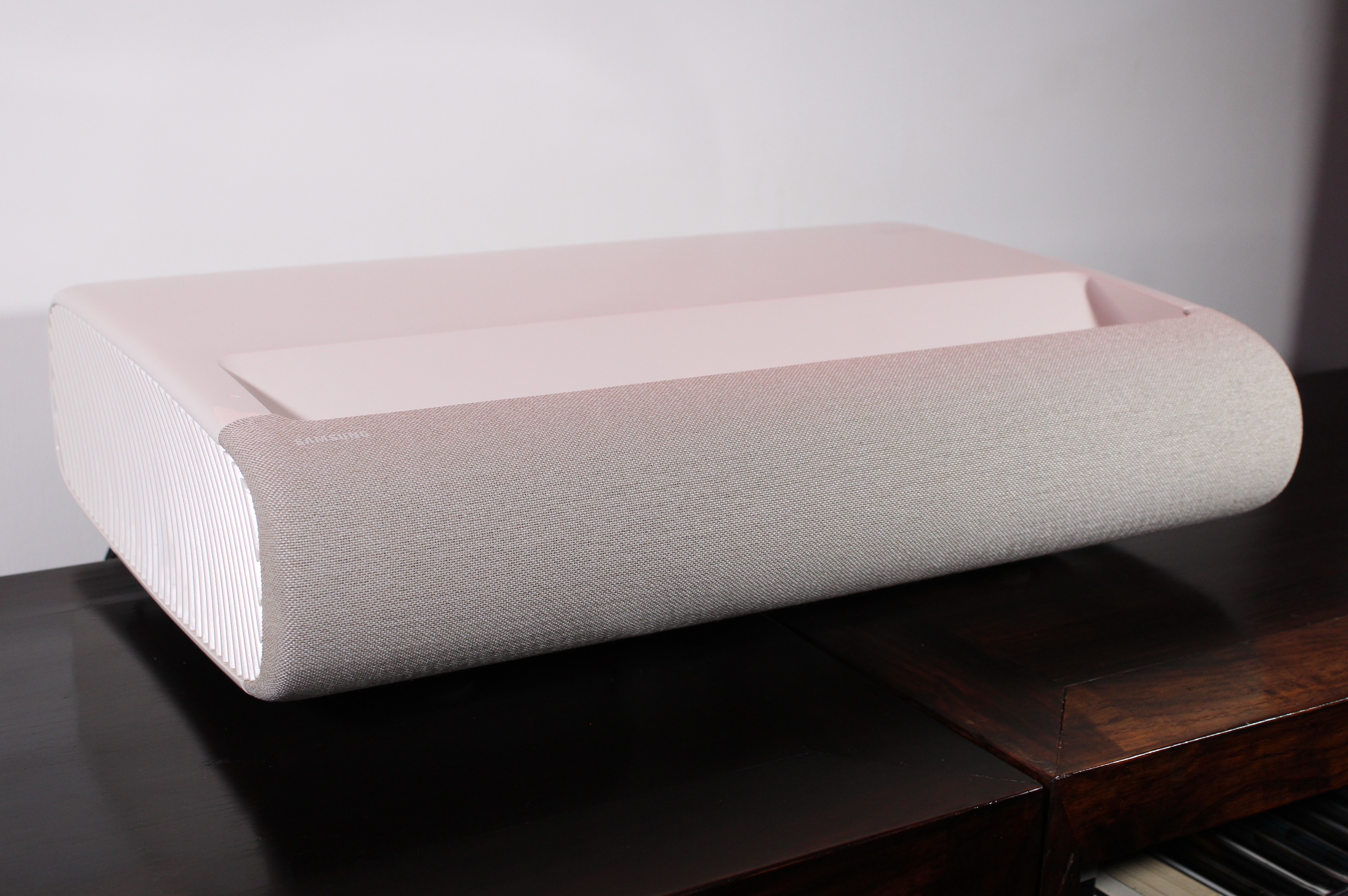
Specifications
Reasons to buy
Reasons to avoid
Samsung’s The Premiere 9 follows in the footsteps of the company’s earlier The Premiere LSP9T in compensating for an area where many ultra short throw projectors fall short: sound quality. In our The Premiere 9 review, we found the sound provided by its built-in 2.2.2-channel speaker array to be “genuinely immersive.” Also, its AI-enhanced Object Tracking Sound processing gave non-Atmos soundtracks a convincing sense of spaciousness and an Active Voice Amplifier Pro feature helped with dialogue clarity.
The Premiere 9 not only sounds good, but its picture performance is also excellent. We found its triple-laser light engine delivered sufficient brightness to light up even a huge 130-inch screen, and the 100% UHDA-P3 and 92% BT.2020 color gamut coverage we measured in our testing means 4K HDR sources are displayed with rich, uncompromised color. Both upscaling of lower-resolution sources to 4K and motion are well-handled by Samsung’s ultra short throw projector, meaning both regular TV shows and sports, along with movies, will look good when beamed up on a big screen.
Samsung’s Tizen smart TV interface is used by The Premiere 9, and the platform is both responsive and offers a wide range of streaming apps. Like Samsung TVs, its projectors feature a built-in Gaming Hub for cloud gaming from Xbox, Nvidia Ge-Force Now, and other services, and there’s also a game bar onscreen menu for making quick gaming-related adjustments.
At $5,999 / £5,999, Samsung’s The Premiere 9 is one of the more expensive models in this guide, but if you want a sleek-looking ultra short throw projector with a bright image and powerful sound, as well as a great built-in smart TV platform, it’s a compelling choice.
Read our full Samsung The Premiere 9 review
The best ultra short throw projector for sports
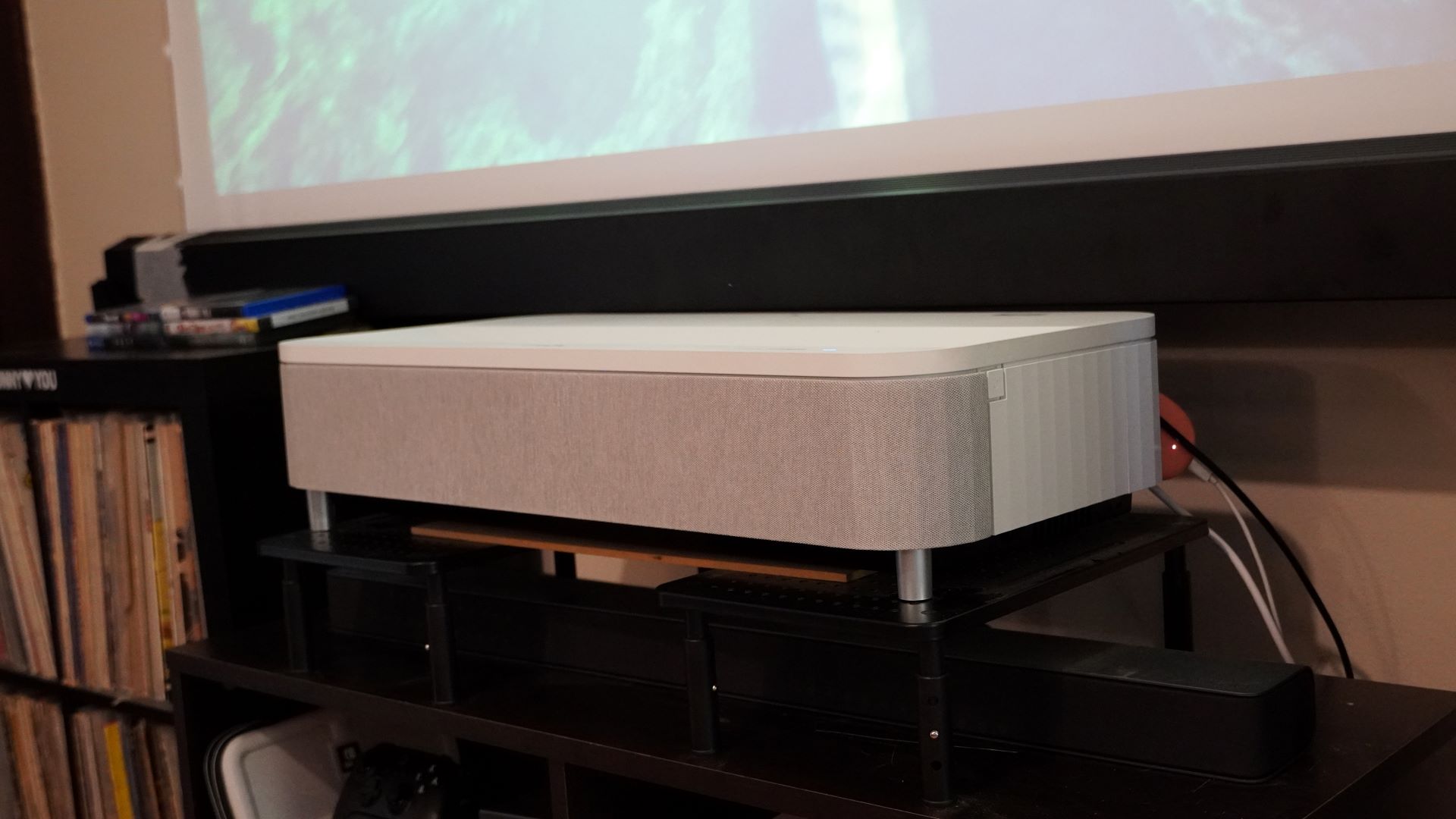
Specifications
Reasons to buy
Reasons to avoid
There’s no shortage of UST projectors turning up to stake their claim as some of the best projectors on the market right now. Epson has shown solid performance with its laser-lit 3LCD technology in various formats, and the Epson LS800 incorporates it in a powerful UST package.
At $3,499 / £3,199 (about AU$5,240), it’s amazing that this Epson can deliver 4000 lumens of brightness, which proves more than enough for viewing in the daytime without covering every window with blackout curtains. Epson could have gone further with eARC support and a wider color gamut, but for what it lacks in those departments, it does a solid job making up for it by simply being usable around the clock with little fuss.
The LS800’s built-in Yamaha-designed speaker setup provides a strong complement to its image. It can pack a punch, and is plenty for 200 or 300 square foot rooms. The virtual sound mode is surprisingly compelling, mixing voices, sound effects, and music with great balance while lending an impression of surround sound.
The LS800 has claimed a place for anyone who wants a simple, powerful projector that lets them beam a huge image they can view at any time of day they want.
Read our full Epson EpiQVision Ultra LS800 review
The best ultra short throw projector for streaming
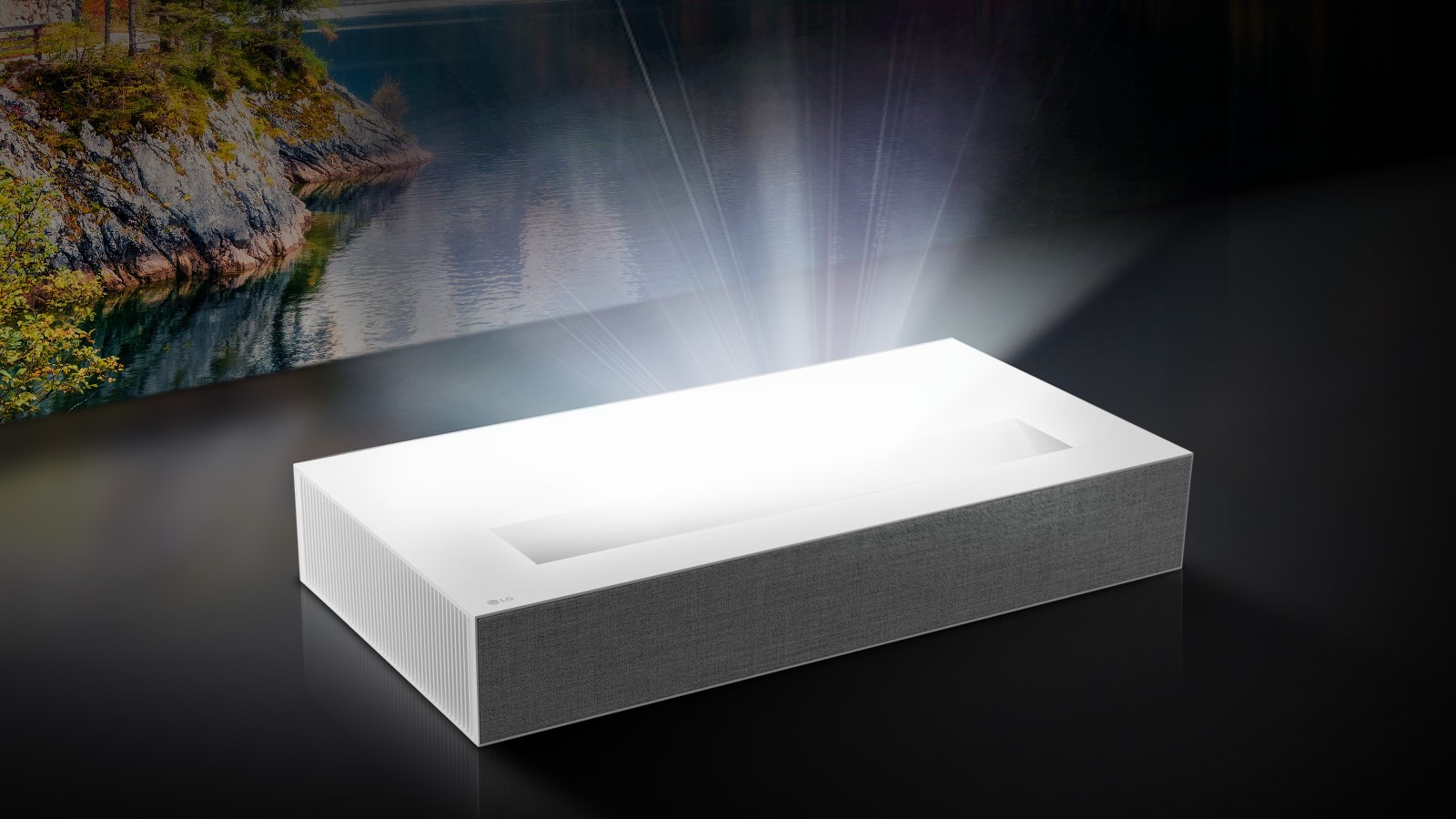
Specifications
Reasons to buy
Reasons to avoid
LG's CineBeam can create a massive display from only inches away. The projector's design is as sharp as its picture, with a sleek rectangular profile.
Picture quality is good, as we found during our review. However, we think you'll want to use external speakers for the soundtrack, as there's a lack of detail in the high frequencies and we'd prefer a bit more low-end thump too.
The projector itself uses LG’s WebOS, which is the same smart interface the company uses in its TVs, and it also uses the same Magic Remote for control. WebOS is easy to navigate and, as with many other smart platforms, you can choose from a wide range of streaming services and access other features from the gallery. If you’re into voice controls, you can use the remote's built-in mic to jump to different apps, change the volume, and more.
LG’s projector makes use of Google Assistant too – so if you’re set up in the Google ecosystem, you’ll be able to control not only the projector, but also your smart home devices and so on. It’s a handy touch, and helps make the already smart WebOS even smarter.
Read our full LG HU85LA CineBeam Projector review
Other ultra short throw projectors to consider
Epson EpiqVision Ultra LS650: This projector is a less bright (but less expensive) step down from the LS800 in the guide, so if you're looking for a cheaper, compact option that still delivers strong brightness overall, then the LS650 is worth considering. Its brightness is enough that it can handle brighter viewing environments. While it doesn't make the list due to a sluggish smart platform and limiting amount of connections, it's still a decent UST projector. Read our full Epson EpiqVision Ultra LS650 review.
Xgimi Aura 2: The Xgimi Aura 2 delivers bright and punchy picture quality, has good connectivity and delivers good brightness levels in rooms with higher brightness levels. Its held back from true greatness by an inconsistent and poor operating system and inconsistent pricing from region to region. However, if it's well priced in your area, the Aura 2 could be worth considering. Read our full Xgimi Aura 2 review.
New ultra short throw projectors to look for
A number of new UT projectors were introduced at the recent CES 2025 trade show, including several that stand a good chance of landing in this guide in the near future.
The most promising one is the Hisense L9Q Trichroma Laser TV. This RGB laser model comes packaged with an ambient light rejecting projection screen in 100-, 110-, 120-, 136-, and 150-inch screen size options and delivers a claimed 5,000 lumens peak brightness, a 67% brightness boost over previous Hisense Laser TV models. It also features a built-in 6.2.2-channel audio system – the first-ever in a projector – and Hisense has partnered with French speaker maker Devialet for tuning. This fully premium projector will also arrive with Dolby Vision support, Google TV with voice assistant, and a built-in ATSC 3.0 tuner.
Billed as the “world’s smallest laser TV,” the JMGO 02S Ultra is a shoebox-sized UST model with a triple-color laser light source that delivers a specified 2,500 ISO lumens and 110% BT.2020 color space coverage. This super-compact projector can beam a 100-inch image from a 5.75-inch distance and has auto-calibration features for keystone correction, focus, and screen fitting. The Google TV smart TV platform is onboard for streaming, and the 02S Ultra supports Dolby Vision high dynamic range.
The Samsung The Premiere 5 is another pint-sized UST projector with an RGB laser light engine, though unlike the JMGO 02S Ultra, its resolution maxes out at 1080p HD. Samsung’s portable UST can beam images from 20 to 100 inches, has a specified 560 ISO lumens brightness, and features auto keystone and focus for quick setup. It also has Samsung LightWARP technology that lets you project images onto everyday objects, though we’re not exactly sure about the specific use case for that feature.
How to choose the best ultra short throw projector
Are UST projectors good for watching TV?
The flexibility that UST projectors provide when it comes to room lighting makes them a great option for watching daytime sports. And their compact installation, with the projector positioned close to the wall where a screen is mounted, also means there will be no shadows cast by family members and friends as they walk around during commercial breaks as they would with a standard projector. That’s not to say UST projectors won’t look good when lights are dimmed and it’s movie time. For that scenario, many models can perform equally well as their long-throw projector counterparts. Some even have the added benefit of Dolby Vision high dynamic range support, which is especially useful for movie viewing.
Are UST projectors good value?
UST projectors also work out to be great value when compared to the largest examples of the best 4K TVs, which are now sold in screen sizes up to 98-inches. While TVs that large are priced anywhere from $8,000 for a new Samsung QLED model up to $25,000 for an LG OLED, a UST projector typically sells for $2,500 to $3,500. Many UST projectors also have relatively powerful built-in speakers, and that feature adds to their value by eliminating the need – in some cases – for an external audio system.
Do I need a screen with a UST projector?
As with any projector, a projection screen isn’t required for UST projectors to work. You can also project onto a white-painted wall, preferably a smooth one that’s free from cracks or other inconsistencies. Use of a dedicated screen will result in the best performance, however, and will affect important picture parameters like brightness, contrast, color accuracy, and detail.
While you can use a regular matte white screen with a UST projector, especially if you’re viewing in a room with proper light-control, you’ll generally get better results by using an ALR screen. An ALR screen is designed to filter out light emanating from undraped windows and lamps that would otherwise reflect off the screen’s surface and reduce picture contrast. A special type of ALR screen is normally used with UST projectors that takes the additional picture-improving step of filtering out light coming from above while directly reflecting light coming from the projector positioned below. Some UST projectors such as the Hisense LG9 are even sold as a package with an ALR screen, which is typically available in a 100-inch or 120-inch size option.
Do UST projectors look as good as TVs?
For the most part, no. Even when using a screen with special material optimized for UST projectors, the image won’t be as bright or have the same contrast level as what you can expect to see with the best TVs. One area of picture quality where certain UST projectors can beat TVs is color rendition. Models that use three separate lasers to transmit the red, green, and blue components of video images are generally capable of covering 100% of BT.2020 color space, which is the recommended color space standard for ultra high-definition television. The best TVs, in contrast, generally max out at 75% BT.2020 color space coverage.
Should I get a UST projector with a fixed or variable image size?
That will depend on whether or not you plan to buy a UST screen as part of a package with the projector. Models with a fixed image size – typically 100- or 120-inches – come with a matched screen, which in some ways eases setup. A projector with a variable image size will have a zoom lens that allows you to vary the size of the image. This feature will be helpful if you plan to use a screen smaller than 100-inches, or plan to use the projector in multiple locations.
Are UST projectors compatible with streaming services?
Most UST projectors feature a built-in smart TV interface, or come with a USB stick that’s used for streaming. In the first case, it will typically be the same smart interface found on the manufacturer’s TV lineup – LG’s webOS or Samsung’s Tizen, for instance. In the second, it will be Android TV. Most Android TV implementations don’t support Netflix, however, so if that’s one of your regular streaming apps, you’ll need to connect one of the best streaming devices (Roku, Amazon Fire TV, Google Chromecast, Apple TV 4K, etc.).
Do UST projectors need regular lamp replacements?
UST projectors typically use a laser light source instead of the lamps found in most long throw projectors, so there is no need for lamp replacements. Lifetime specifications for laser light sources are generally 20-25,000 hours, which should provide 10-20 years of use depending on the number of hours spent viewing per day.
Do I need a soundbar with a UST projector?
Most UST projectors are designed to be all-in-one audio and video systems and have reasonably high-quality built-in speakers. They all also feature both optical digital and HDMI eARC or ARC ports audio output to a soundbar, so you’ll have that option if you find the sound quality to be insufficient.
How we tested the best ultra short throw projectors
At TechRadar, we evaluate UST projectors in both bright and dark room environments, the same as you would when using the projector at home. We also pair the projector with a projection screen – typically an ambient light-rejecting type specifically designed for use with UST models.
Using both test patterns and reference movie clips, we test the projector’s ability to display bright, uniform images with fully saturated colors. We also test for image sharpness and both noise and motion handling. Audio also gets tested, as we evaluate the projector’s ability to convey both basic TV show dialogue and complex movie soundtracks with clarity and dynamic finesse.
Streaming and gaming is another part of our testing regimen. In the first case, we check the projector’s smart TV interface to see the range of streaming apps on offer and how easy it is to navigate through them. In the second, we connect a next-generation gaming console and test both motion handling and input lag.
The latest updates to this best ultra short throw projectors guide
March 6 2025
Added section 'New ultra short throw projectors' detailing new and forthcoming models introduced at CES 2025.
January 6 2025
Replaced the Hisense PX2-Pro with the Formovie Cinema Edge as the best budget UST projector. Updated Also Consider section with other UST models to consider.
November 10 2024
Replaced Samsung The Premiere with Samsung The Premiere 9 as 'best for sound quality' option.
October 10 2024
Replaced the Hisense L9G with the Hisense PX3-Pro as 'the best overall" option.
August 5 2024
Checked all products against our latest reviews, and updated our Also Consider section with information about those reviews.
June 14 2024
Replaced the Hisense PX1-Pro with Hisense PX2-Pro, a newer model with improved brightness.
August 3 2023
Ultra short throw projectors buyer's guide launched.
Get daily insight, inspiration and deals in your inbox
Sign up for breaking news, reviews, opinion, top tech deals, and more.

Al Griffin has been writing about and reviewing A/V tech since the days LaserDiscs roamed the earth, and was previously the editor of Sound & Vision magazine.
When not reviewing the latest and greatest gear or watching movies at home, he can usually be found out and about on a bike.